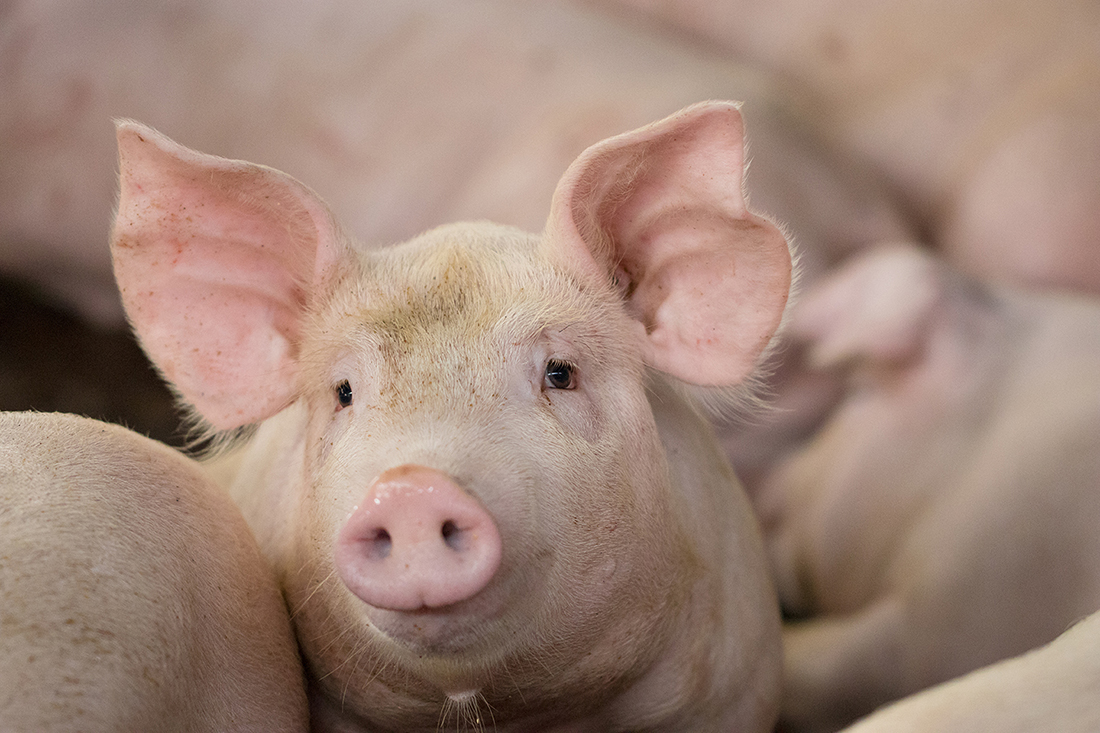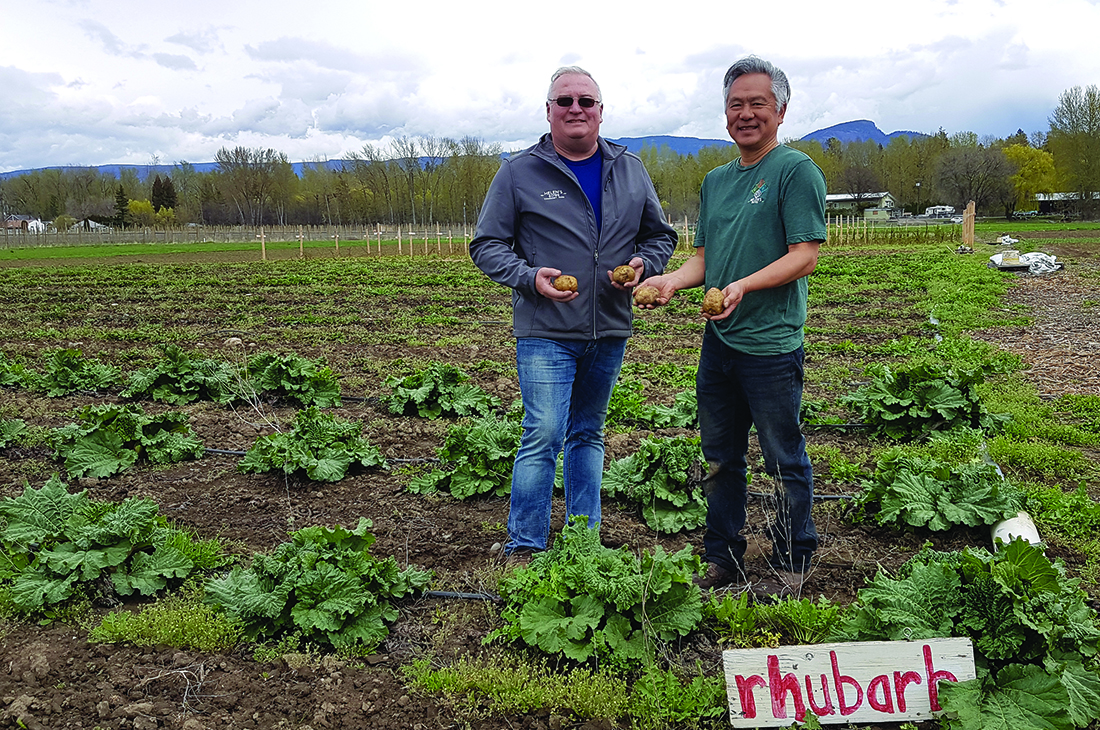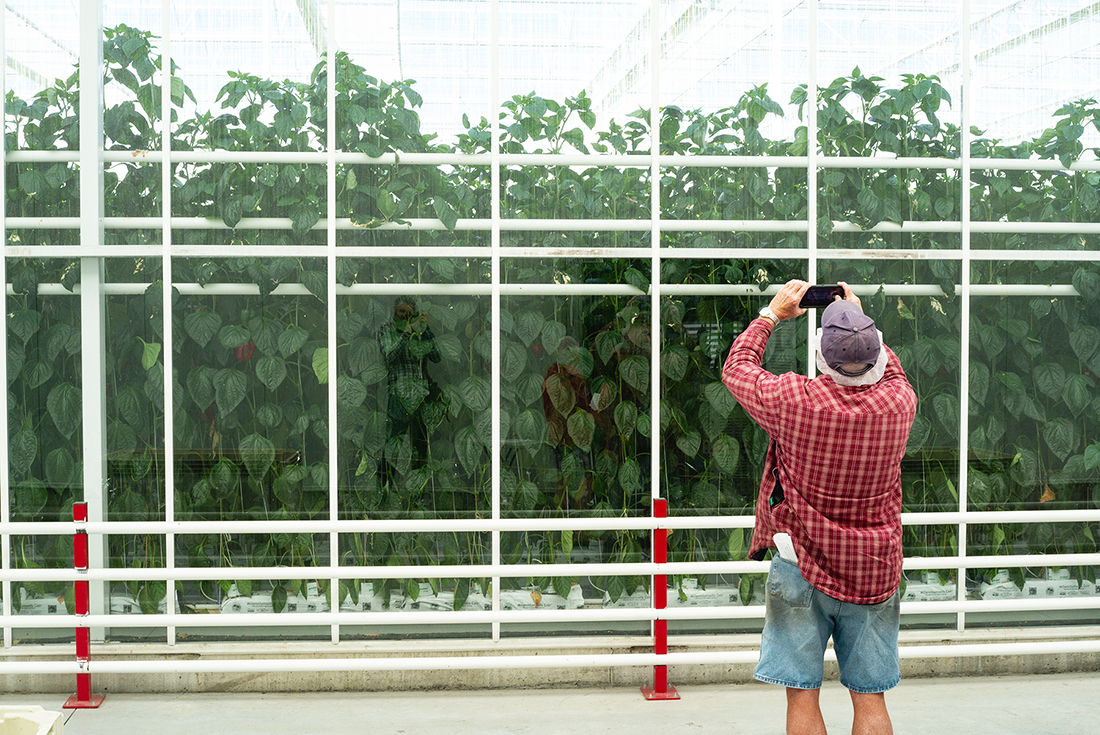ABBOTSFORD – There are reportedly over 1,000 hog producers in BC but only nine farms were represented at the BC Hog Marketing Commission and BC Pork Producers Association annual meetings in Abbotsford, April 3.
Still, BCHMC and BCPPA general manager Christine Koch considers that an excellent turnout, noting there are only 15 producers registered with the commission and five of those are situated outside the Fraser Valley. To be registered as a commercial producer, a farm must produce or be able to produce at least 300 hogs a year. Registered producers must also be validated annually under the Canadian Pork Excellence (food safety and animal welfare) program.
Both BCHMC chair Bert van Dalfsen and BCPPA president Jack DeWit said the commission and the association are working with each other and with local producers and processors to find opportunities to expand and improve the local industry, which continues to shrink.
Koch noted the industry lost two more producers in 2018 while a third opted to depopulate. Overall production numbers declined 4%. Market hogs decreased by 7% while round hogs (small hogs traditionally sold whole into the Asian market) increased by 4%.
Given the small size of the industry, producers voted to reduce the number of elected commission directors from three to two, effective with this fall’s election.
The commission presented a draft of the new general orders it expected to adopt later in April. Van Dalfsen said the new orders no longer reference pricing and clean up some definitions. He said the rewrite has been a long time coming, noting it was initiated in 2014 by then-chair Gary Rolston and then-general manager Geraldine Auston.
Meanwhile, the association contracted Serecon Consultants of Edmonton to review the rendering program and look at potential options. Serecon’s study determined rendering is still the best option, calling it, “the least damaging to the financial wellbeing of the sector (and) provide the highest level of biosecurity assurance which is a critical consideration given the current concerns over African swine fever (ASF).”
ASF is one of two diseases that could devastate BC hog production. The other is porcine epidemic diarrhea (PED). Neither is yet in BC.
Nevertheless, BC’s only dedicated swine veterinarian, Dr. Josh Waddington, warned local producers, “We’re at a risk level we’ve never been at before.”
If either disease arrives, Waddington expects PED would only affect individual farms while ASF would likely impact the entire industry.
ASF has exploded in Eurasia, particularly China, but has yet to appear in North America. It does not affect humans but can cause up to 100% mortality in hogs.
PED is in North America but was previously restricted to the US Midwest, Ontario, Quebec and parts of Manitoba. That changed in January when it appeared on a farm in Alberta. Since then, three more Alberta farms have come down with the disease, the latest being on March 18. A coronavirus, PED takes about six to eight weeks to move through a farm, causing almost 100% mortality in piglets during that time.
PED can be transmitted on persons or vehicles while ASF is generally transmitted through plasma protein, typically by feeding pork products to pigs.
“We don’t use porcine plasma in BC feed so if ASF appears here it will likely show up first in backyard hogs,” Waddington said. On the other hand, he believes PED is more likely to start on commercial piggeries.
“We are at risk from Alberta hogs coming into BC on a daily basis and driving right past some of our major producers,” Waddington said.
He notes there is a large variation in processor and driver biosecurity and a lack of good truck-wash facilities in BC.
“We have to figure out how to wash trucks better and producers need to improve their on-farm biosecurity,” he said.
Waddington is a member of the Canada West Swine Health Intelligence Network (CWSHIN), which he calls, “a real good tool for me as a sole practitioner in BC.”
Since former BC swine veterinarian Dr. Chris Byra retired as CWSHIN manager last spring, it has been coordinated by PEI-based epidemiologist Dr. Jette Christensen. She told producers CWSHIN’s goal is to detect diseases early and integrate information on responses.
“We are vets sharing information,” Christensen said. “Every quarter, we have a teleconference to discuss what’s happened in the four western provinces in the previous quarter. Each vet submits his clinical impressions – are things getting worse or better – and we coordinate that with lab reports and abattoir data. By combining data and analyzing it, we add value.”
Unfortunately, CWSHIN currently only gets abattoir data from federally inspected plants. Christensen says CWSHIN is working on ways to expand its data collection to include BC’s provincially licenced plants.


 Farm initiative puts heart back in agriculture
Farm initiative puts heart back in agriculture